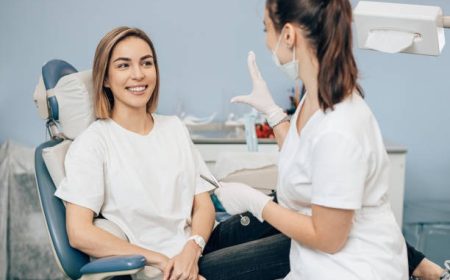It seems as easy as driving down to the vet’s office and having your furry friend injected against many diseases that could harm them, but is that all there is to vet visits? Surprisingly, the answer is no. You can prepare your pet for routine vaccinations in several ways to ensure a smooth and less stressful procedure.
What Is Pet Vaccination?
Pet vaccination is a critical aspect of preventive healthcare for dogs, cats, and other animals. Vaccinations help protect pets from various infectious diseases that can be potentially life-threatening. Vaccines stimulate the pet’s immune system to produce antibodies against specific viruses or bacteria, providing immunity and preventing disease development. Click here to learn about pet vaccination and other preventive pet care measures.
Key Points About Pet Vaccination
- Core Vaccines: Core vaccines are essential for all pets and protect against highly contagious and severe diseases. Core vaccines typically include distemper, parvovirus, adenovirus, and rabies for dogs. For cats, core vaccines often include feline herpesvirus, calicivirus, panleukopenia, and rabies.
- Non-Core Vaccines: Non-core vaccines are recommended based on a pet’s lifestyle, risk factors, and geographical location. These vaccines protect against diseases that may not be prevalent in all areas or may be more relevant to specific pets. Examples include vaccines for Bordetella (kennel cough), leptospirosis, feline leukemia virus (FeLV), and feline immunodeficiency virus (FIV).
- Vaccination Schedule: Puppies and kittens start receiving vaccinations at around 6-8 weeks, and booster shots are given regularly until adulthood. Adult pets require booster shots annually or every three years, depending on the vaccine type.
- Puppy and Kitten Series: Young animals receive a series of vaccines to build up their immunity gradually. These series are necessary because maternal antibodies passed from the mother can interfere with early vaccinations.
- Vaccine Reaction: Most pets tolerate vaccinations well, but some may experience mild reactions like soreness at the injection site or slight fever. Severe allergic reactions to vaccines are rare but can occur. If you notice any concerning symptoms after vaccination, contact your veterinarian.
- Importance of Regular Boosters: Regular booster shots are crucial to maintaining a pet’s immunity against infectious diseases. Skipping or delaying boosters can leave your pet vulnerable to preventable illnesses.
- Legal Requirement: Rabies vaccination is often required by law in many jurisdictions. Keeping your pet’s rabies vaccine up to date protects them and helps prevent the spread of this fatal disease to humans.
- Discuss with Your Veterinarian: Your veterinarian is the best source of information regarding your pet’s specific vaccination needs. They can tailor a vaccination schedule based on your pet’s lifestyle, age, health status, and exposure risks.
Vaccinations are essential to responsible pet ownership and play a significant role in keeping pets healthy and protecting public health.
Preparing My Pet for Vaccination
Preparing your pet for routine vaccinations can help ensure a smooth and stress-free experience for your pet and the veterinary team. Here are some steps to prepare your pet for their vaccination appointment:
1. Schedule an Appointment
- Contact your veterinarian and schedule a vaccination appointment for your pet.
- By making an appointment in advance, you can choose a time that fits your schedule and ensure the veterinary staff is prepared to attend to your pet’s needs.
2. Update Medical History
- Provide your veterinarian with your pet’s complete medical history, including previous vaccination records and any health concerns or changes since the last visit.
- This information helps the veterinarian assess your pet’s health status and make informed decisions about the appropriate vaccinations.
3. Bring Relevant Information
- Bring any paperwork or information about their health and vaccination history if your pet has received vaccinations or medical care from another veterinarian or clinic.
- This helps the veterinarian avoid unnecessary duplicate vaccinations and ensures that your pet’s medical records are up-to-date.
4. Prepare Pet Carrier or Leash
- If your pet is small enough to be carried or if you have a cat, bring a secure pet carrier to transport them safely to the veterinary clinic.
- For dogs, use a leash or harness to ensure their safety during travel and while at the clinic.
- This prevents your pet from wandering or becoming stressed in a new environment.
5. Create a Calm Environment
- Keep your pet in a calm and familiar environment before the appointment. Avoid stressful situations or interactions that could heighten anxiety.
- A calm and relaxed pet will be more receptive to the veterinary visit.
6. Exercise and Potty Break
- Before the appointment, give your pet some exercise and a chance to relieve themselves.
- A tired and empty bladder can contribute to a more relaxed pet during the visit, reducing restlessness or discomfort.
7. Limit Food Before the Appointment
- Avoid feeding your pet a large meal before the appointment, as a full stomach may lead to discomfort during handling or cause nausea.
- A small treat or snack can keep them comfortable and motivated if needed.
8. Pack Treats or Toys
- Bring your pet’s favorite treats or toys to provide positive reinforcement and distract them during vaccination.
- Offering treats and engaging them with toys can help create a positive association with the veterinary visit and reward good behavior.
9. Use Positive Reinforcement
- Use positive reinforcement techniques, such as praise and rewards, to encourage and reward your pet’s cooperation during vaccination.
- Positive reinforcement helps reduce fear and anxiety associated with veterinary visits.
10. Stay Calm and Relaxed
- Pets can pick up on their owner’s emotions.
- Stay calm and relaxed during the appointment to help reassure your pet that everything is okay.
- Being calm can help alleviate your pet’s anxiety or stress.
11. Ask Questions
- Ask your veterinarian about the vaccination during the appointment if you have any questions or concerns.
- A clear understanding of the vaccination process and any potential side effects can ease your worries and ensure your pet’s well-being.
12. Follow Post-Vaccination Care Instructions
- After the vaccination, follow any post-vaccination care instructions provided by your veterinarian.
- This may include monitoring for adverse reactions, administering additional medications if necessary, and noting changes in your pet’s behavior or health.
Following these steps and providing a positive and supportive environment can help prepare your pet for routine vaccinations and make the experience more comfortable.
Other Essential Pet Services
Other essential pet services are crucial in maintaining our beloved animal companions’ health, well-being, and happiness. Here are some of them:
-
- Routine Veterinary Check-ups: Regular wellness exams are vital to monitor your pet’s health, detect potential health issues early, and ensure they are up-to-date with vaccinations and preventive care. Learn more about these check-ups by visiting this site: https://www.tumwaterveterinary.com/site/veterinary-services/cat-dog-routine-exams.
- Pet Dental Care: Dental health is crucial for pets, and regular dental check-ups, cleanings, and at-home dental care help prevent dental diseases and keep their teeth and gums in good condition.
- Spaying and Neutering: Responsible pet owners should consider spaying or neutering their pets to prevent unwanted litters and for various health and behavioral benefits.
- Pet Grooming: Regular grooming, including bathing, brushing, and nail trimming, helps keep your pet clean, comfortable, and free from mats or skin irritations.
- Pet Nutrition and Diet: A balanced and nutritious diet tailored to your pet’s needs is essential for their overall health and longevity.
- Pet Hospice Care: Invariably, the end of your pet’s life will come. You want to ensure they are comfortable and at peace when it does. Pet hospice care, offered by facilities like Tumwater Veterinary Hospital, provides a calm and supporting environment for your pet as they live their final days, helping both you and them navigate this challenging time.
Conclusion
Preparing your pet for routine vaccinations doesn’t have to be complex or overwhelming. By incorporating the strategies outlined in this post into your pet care routine, your four-legged friend and yourself will have a more comfortable, stress-free vet visit experience. Remember, regular vet visits are not only about disease prevention. They’re about maintaining the overall health and happiness of your beloved pets.





